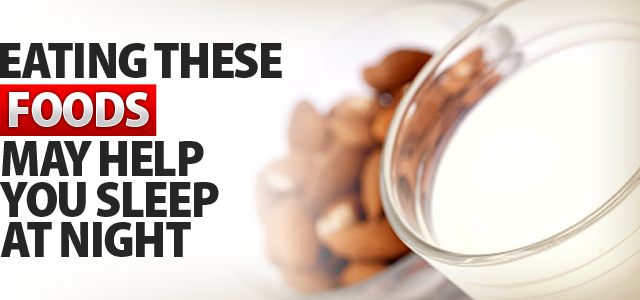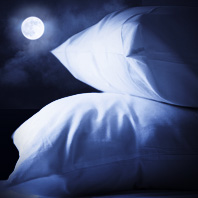Adding these foods to your diet may help to increase your odds of a successful slumber.
Some people have trouble falling asleep. Others can’t stay asleep. And then there are the people who have trouble turning life “off” and tucking into bed at a reasonable hour.
Whatever the reason, we’re not alone—more than 50 million Americans don’t get enough shut-eye. Yet the health benefits of a good night’s rest are countless: sleep helps keep you happy, your brain sharp, your immune system strong, your waistline trim, your skin looking youthful—and lowers your risk of high blood pressure and heart disease
Here’s the good news: Adding these foods to your diet may help to increase your odds of a successful slumber.
1. Fish
Most fish—and especially salmon, halibut and tuna—boast vitamin B6, which is needed to make melatonin (a sleep-inducing hormone triggered by darkness), according to an article published in the Annals of the New York Academy of Sciences.
2. Jasmine Rice
When healthy sleepers ate carbohydrate-rich suppers of veggies and tomato sauce over rice, they fell asleep significantly faster at bedtime if the meal included high-glycemic-index (GI) jasmine rice rather than lower-GI long-grain rice, in a study published in the American Journal of Clinical Nutrition. While the authors aren’t sure how it happened, they speculated that the greater amounts of insulin triggered by the high-GI meals increased the ratio of sleep-inducing tryptophan relative to other amino acids in the blood, allowing proportionately more to get into the brain.
3. Tart Cherry Juice
In a small study, melatonin-rich tart cherry juice was shown to aid sleep. When adults with chronic insomnia drank a cup of tart cherry juice twice a day they experienced some relief in the severity of their insomnia.
4. Yogurt
Dairy products like yogurt and milk boast healthy doses of calcium—and there’s research that suggests being calcium-deficient may make it difficult to fall asleep.
5. Whole Grains
Bulgur, barley and other whole grains are rick in magnesium—and consuming too little magnesium may make it harder to stay asleep, reported the Journal of Orthomolecular Medicine.
6. Kale
Dairy products are well-known calcium-rich foods. But green leafy vegetables, such as including kale and collards, also boast healthy doses of calcium. And research suggests that being calcium deficient may make it difficult to fall asleep.
7. Bananas
Bananas, well-known for being rich in potassium, are also a good source of Vitamin B6, which is needed to make melatonin (a sleep-inducing hormone triggered by darkness), according to an article published in the Annals of the New York Academy of Sciences.
8. Chickpeas
Chickpeas boast vitamin B6, which is needed to make melatonin (a sleep-inducing hormone triggered by darkness), according to an article published in the Annals of the New York Academy of Sciences.
9. Fortified Cereals
Fortified cereals also boast vitamin B6, which is needed to make melatonin (a sleep-inducing hormone triggered by darkness), according to an article published in the Annals of the New York Academy of Sciences.
Source: eating well





